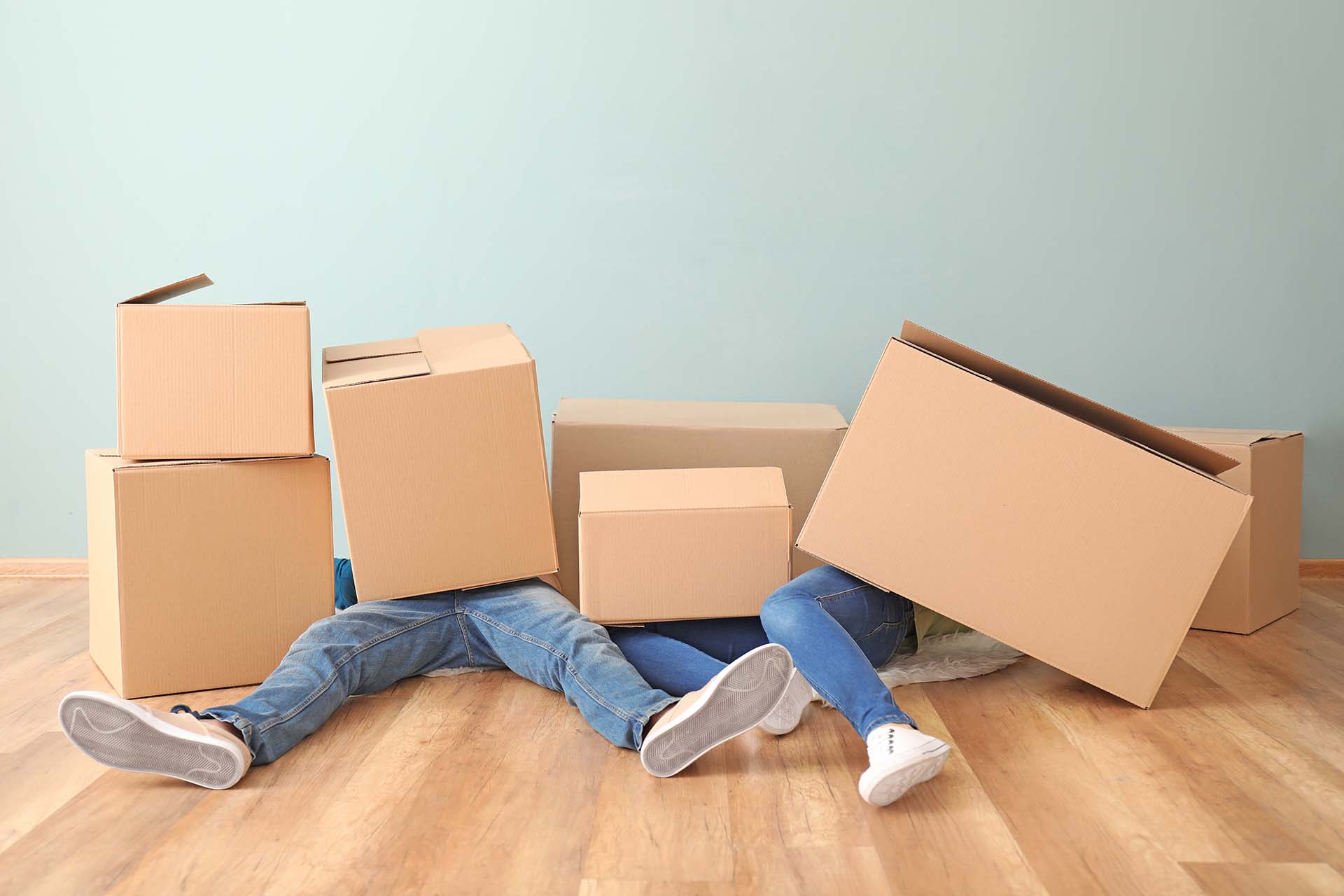

Leaving the nest provides a new sense of independence and freedom that everyone should experience at one point in their life. Learning how to live on your own is going to be crucial, though, as moving out unprepared can easily cause you to go broke. If you need some help managing your finances, these five tips will allow you to stay afloat even after setting out on your own.
Is It Cheaper to Live by Yourself?
Did you know that almost 30% of all US households are made up of solo dwellers? This shouldn’t be surprising, as many young Americans dream of leaving their parents’ house even before graduating from high school. However, most people moving out for the first time are unaware that becoming independent is often much more expensive than it looks.
A recent study that compared intrahousehold economies found that being a solo dweller is about 28% more expensive than sharing a home with a partner. It’s common knowledge that singles typically earn less money on average than couples, and they also have to cover every expense themselves.
 How much does it cost to live on your own? About 28% more than sharing the space with a partner
How much does it cost to live on your own? About 28% more than sharing the space with a partner
How Much Money Do I Need to Live on My Own?
Before booking cross-country movers, ask yourself, “How much money do you need to live on your own? The general rule of thumb is that you should always have enough to cover all your expenses. This includes rent, bills, credit cards, savings, and any non-essential spendings you typically make within a month.
To truly become financially independent, you will have to find a job that will provide you with a steady income. Otherwise, you will only end up going back to your parents’ place as soon as your savings run dry. That’s why it’s essential to get a job in the new city even before moving there.
Considering everything we just mentioned, setting out on your own is an expensive life choice. However, that doesn’t mean that it’s impossible to do. Whether you’re relocating after college or simply want to move to a new city alone, the following five tips will help you make it on your own without ever having to worry about going broke.
#1 Create a Budget and Keep Track of Your Spendings
If you want to remain financially stable after moving to another state alone, creating a budget should always be one of the first things on your to-do list. After all, figuring out your finances in advance will help you stay afloat every month, as you won’t worry about becoming broke before the next paycheck rolls in. The budget limit should primarily depend on your income, as you can’t count on parents to save you every time your finances dry up.
To figure out if you earn enough to support a stable life for yourself, calculate how much money you’ll need after moving out. You can easily do this by tracking every major expense you make for an entire month, including everything from buying food to paying off credit card debt and Netflix subscription. Once you decide where you want to move, you can use the Payscale website to compare costs and make adjustments if necessary.
Using the 50/20/30 Rule Will Keep Your Financial Situation Stable
Organizing your monthly budget is a lot easier with the 50/20/30 rule. This budgeting method is based on dividing your after-tax income into three main categories, allowing you to manage your finances much more effectively. It states that 50% of your income should be spent on needs, 20% on savings or debt, and 30% on wants. If necessary, you can even adjust the ratios to reflect your current requirements better.
 Keeping track of your finances will help you avoid overspending
Keeping track of your finances will help you avoid overspending
#2 Always Pay Your Bills and Debts on Time
When living on your own, expenses are known to pile up very quickly, which is why you must always pay your bills and debts on time. While it might not seem like much at first, missing a payment could set you back on your next one, particularly if you have a more limited budget. More importantly, renting an apartment will be much more difficult if you have a low credit score. After all, how can a landlord expect you to pay rent when it’s due if you can’t afford your monthly credit card payments.
Auto Transport
East Coast West Coast Express ships all kinds of vehicles, regardless of their shape, size, price, or weight. From scooters to trucks, if you need it shipped, we can do it.
Read MoreLeave Reminders for Any Payment That Is Due
With all the things to do after moving out for the first time, it’s very easy to get carried away and forget about these obligations. If you want to avoid losing track of all the bills that have to be paid, it’s best to leave reminders somewhere you can’t miss them. This could be a high-traffic area in the apartment like the kitchen, near the front door, or right next to your computer.
Get Used to Paying Bills While Still Living With Your Parents
Leading an independent life will require you to keep track of multiple due dates at once, so it’s best that you get used to paying bills while still living with your parents. While you don’t have to pay rent, try to participate in all other expenses, like paying the utilities and any other services you use around the house. This will also help you learn how to organize important documents at home more quickly, which is certainly a welcome addition for anyone planning to move to another city on their own.
 Get used to paying the bills as soon as they are due
Get used to paying the bills as soon as they are due
#3 Open a Savings Account
While it might be hard to save any money during the first few months of setting out on your own, you should still open a savings account and deposit funds whenever you can. Having emergency savings is a great way to get through difficult times, as you can’t count on your parents to bail you out of every financial crisis.
Considering people rarely have extra cash lying around at the end of the month, it’s best to deposit your savings immediately after getting a paycheck. While the size of your deposits should primarily depend on your monthly balance, leaving anywhere between 10% to 20% of your monthly net income is more than enough to keep you from going broke.
 Having a lot of money on your savings account can get you through some difficult times
Having a lot of money on your savings account can get you through some difficult times
#4 Cut Out All the Unnecessary Living Expenses
Cutting out all the unnecessary spendings is easily one of the best moving tips for anyone who plans to set out on their own. Financial stability is crucial for any solo dweller, which is why you should always try to avoid wasting your resources on non-essential things. Thankfully there are plenty of ways to reduce your living costs without giving up something that you genuinely love do to, like:
- Cooking instead of eating out,
- Buying household supplies at the dollar store,
- Taking a walk or riding a bike instead of paying for transportation,
- Canceling rarely used services,
- Buying things out of season.
Save a Ton of Cash by Bringing Over Some Items and Furniture From Your Old Place
Having to spend a ton of resources on furniture and other household items is one of the biggest obstacles people setting out on their own have to face. If you don’t have the necessary resources right away, moving furniture and a few larger items from the old place will allow you to set up your new home without spending a dime. Don’t forget to pack dishes and some relocation essentials like blankets, pillows, and bedding, and you’ll have almost everything you need.
If you can’t transport these belongings on your own, you can save up on cross-country moving services if you look for East Coast or West Coast movers in advance. This will enable you to find an affordable long-distance moving company much more quickly, meaning you can book some excellent professional packing services for a very reasonable price.
Take a Shot at Minimalism
Having to give up so many commodities at once might cause some anxiety about moving out, so being able to control your shopping impulses is one of the best signs that you are ready to move. A minimalist approach to life could save you a ton of cash in the long run, so you might want to try it before you even book a relocation with long-distance movers. If you need some suggestions on what to stop buying to cut your costs, take a look at the video below.
#5 Move to a Home You Can Actually Afford
If you are relocating to a state which has much higher housing costs, there’s a very good chance you will have to move to a smaller home. While rent is the single biggest expense you’ll have after moving, the place you choose shouldn’t require more than a third of your monthly balance. Otherwise, you’ll often find yourself struggling to make ends meet.
Deal With All the Things That Can’t Fit Into Your New Place
Relocating to a smaller place will almost certainly require you to downsize before moving, particularly if you are relocating from a house to an apartment. This is not easy, though, as you will have to find a way to deal with all the items that can’t fit in your new place. While adopting the minimalist approach might make decluttering easier, not everyone will know what to keep and get rid of.
If you’re not sure what to do or don’t want to throw away even a single item, you might as well place everything in storage. In case you end up relocating again, all your belongings will be ready for shipping right away. If you don’t have a locker already, many West Coast and East Coast movers have excellent storage facilities that you can use just by moving with them.
Consider Getting a Roommate to Ease the Transition
Solo-dwelling can be incredibly difficult, particularly for someone just leaving the nest. If you’re having trouble keeping up with all the finances, you might want to consider getting a roommate. While this might not be the situation you were hoping for, it will help ease the transition and provide financial stability until you are truly ready to set out on your own.
 What is the cheapest way to live by yourself? Getting a roommate will cut your costs significantly
What is the cheapest way to live by yourself? Getting a roommate will cut your costs significantly
Now That You Know How to Live on Your Own, It’s Time to Start Preparing for the Move
Leading an independent life brings a lot of advantages, but it requires a lot of planning to be viable for the long term. The good news is that using these tips should help you stay afloat and allow you to manage your finances much more effectively. Once you are ready to leave the nest, start saving up some money for rent, utilities, food, and any other expenses you’ll have during the first few months after moving. Lastly, don’t forget to set aside some funds for car shipping or any long-distance moving services you might require.










